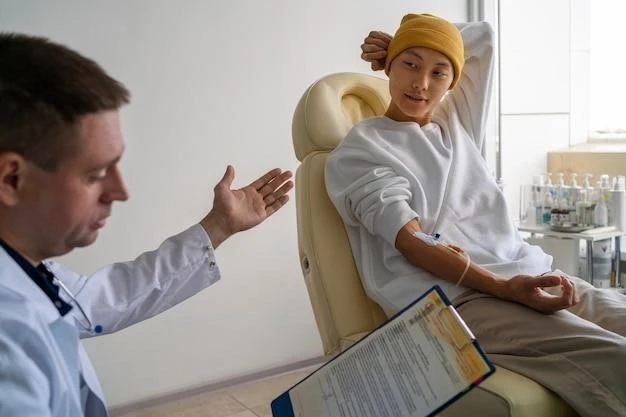Causes of Axial Mesodermal Dysplasia
Axial Mesodermal Dysplasia can be caused by genetic mutations
or environmental factors affecting mesodermal development.
Genetic Mutations
Genetic mutations in key developmental genes can disrupt mesodermal formation, leading to Axial Mesodermal Dysplasia. These alterations may impact crucial signaling pathways and result in abnormal tissue development during embryogenesis.
Environmental Factors
Exposure to certain environmental triggers during critical stages of fetal development can contribute to the pathogenesis of Axial Mesodermal Dysplasia. Factors such as teratogenic substances or maternal health conditions may disrupt mesodermal differentiation, impacting embryonic growth and leading to the disorder.
Symptoms and Diagnosis of Axial Mesodermal Dysplasia
Common Symptoms
Common symptoms of Axial Mesodermal Dysplasia include skeletal abnormalities, musculoskeletal deformities, spinal defects, cardiac anomalies, and potential respiratory issues. Individuals may also present with facial dysmorphism, limb malformations, and neurological impairments.
Diagnostic Procedures
Diagnostic procedures for Axial Mesodermal Dysplasia involve imaging studies such as X-rays, MRIs, and CT scans to assess skeletal abnormalities. Additional tests may include echocardiograms, genetic testing to identify mutations, and clinical evaluations by multidisciplinary teams specializing in rare genetic disorders.
Treatment Options for Axial Mesodermal Dysplasia
Medication
Pharmacological interventions for Axial Mesodermal Dysplasia primarily focus on symptom management and supportive care. Medications may be prescribed to alleviate pain, manage cardiovascular complications, address respiratory issues, and improve musculoskeletal function. However, there is no specific targeted drug therapy for this condition.
Surgical Interventions
Surgical interventions for Axial Mesodermal Dysplasia may be necessary to correct skeletal deformities, spinal abnormalities, or address cardiovascular complications. Procedures such as orthopedic surgeries, spinal fusion, or cardiac surgeries aim to improve functionality and quality of life in individuals with this condition.

Management of Axial Mesodermal Dysplasia Complications
Orthopedic Complications
Orthopedic complications in Axial Mesodermal Dysplasia may include limb length discrepancies, scoliosis, joint contractures, and hip dysplasia. Management strategies involve orthopedic interventions such as corrective surgeries, bracing, physical therapy, and assistive devices to improve mobility and function.
Cardiovascular Complications
Individuals with Axial Mesodermal Dysplasia may experience cardiovascular complications such as congenital heart defects, valvular abnormalities, or aortic malformations. Treatment involves close monitoring by cardiologists, potential surgical interventions for heart defects, and lifestyle modifications to reduce cardiovascular risks.
Research Advances in Axial Mesodermal Dysplasia
Current Studies and Findings
Ongoing research focuses on elucidating the molecular mechanisms underlying Axial Mesodermal Dysplasia, exploring potential gene therapies, and investigating novel treatment modalities. Recent studies aim to improve diagnostic tools, enhance therapeutic strategies, and advance our understanding of this rare genetic disorder.
Potential Future Treatments
Future treatments for Axial Mesodermal Dysplasia may involve targeted gene therapies, regenerative medicine approaches, and precision medicine techniques. Researchers are exploring personalized treatment options tailored to specific genetic mutations and utilizing cutting-edge technologies to develop innovative interventions that address the root causes of the disorder.
Living with Axial Mesodermal Dysplasia⁚ Tips and Strategies
Physical Therapy
Physical therapy plays a vital role in managing Axial Mesodermal Dysplasia by focusing on strengthening muscles, improving range of motion, enhancing coordination, and providing adaptive strategies for daily activities. Customized exercise programs and mobility aids can help individuals maximize their functional abilities and improve quality of life.
Psychological Support
Psychological support is essential for individuals with Axial Mesodermal Dysplasia to cope with emotional challenges. Counseling, psychotherapy, and support groups can help address stress, anxiety, depression, and improve overall mental well-being. It is crucial to provide holistic care that includes psychological support alongside medical interventions.
Genetic Factors in Axial Mesodermal Dysplasia
Inheritance Patterns
Axial Mesodermal Dysplasia can exhibit variable inheritance patterns, including autosomal dominant, autosomal recessive, or sporadic mutations. Understanding the genetic basis and mode of transmission is crucial for genetic counseling and family risk assessment.
Genetic Counseling
Genetic counseling for Axial Mesodermal Dysplasia involves assessing familial risks, discussing inheritance patterns, providing information on genetic testing, and supporting informed reproductive decision-making; Guidance from genetic counselors helps individuals and families understand the genetic implications of the condition and navigate potential genetic complexities.
Support Resources for Individuals with Axial Mesodermal Dysplasia
Patient Support Groups
Patient support groups offer a valuable source of emotional support, shared experiences, and practical resources for individuals with Axial Mesodermal Dysplasia. These groups provide a supportive community, education, and advocacy, fostering a sense of belonging and empowerment among patients and their families.
Access to Specialized Care Centers
Access to specialized care centers is essential for individuals with Axial Mesodermal Dysplasia to receive comprehensive and multidisciplinary care. These centers offer expertise in managing complex medical needs, coordinated treatment plans, and access to advanced therapies, enhancing the quality of life and outcomes for patients affected by this rare condition.
